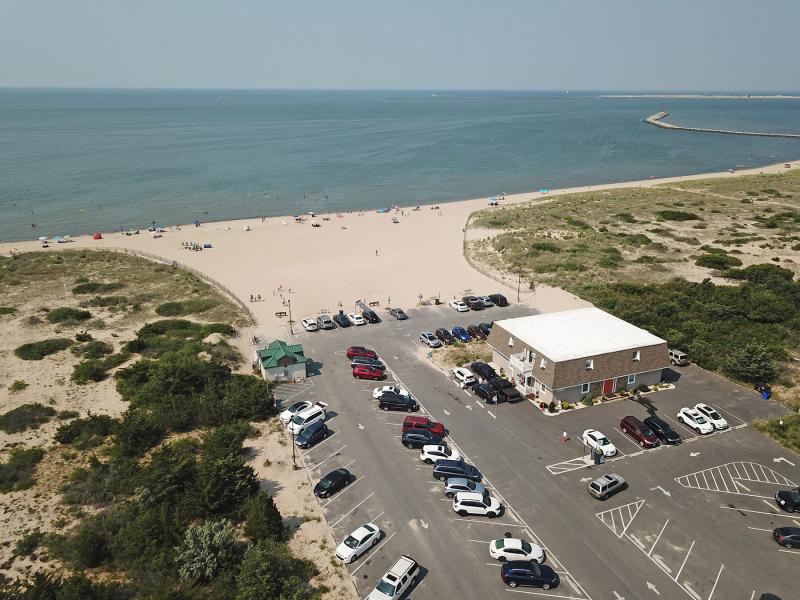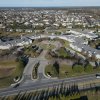Johnnie Walker Beach closer to reality in Lewes
The Lewes Parks and Recreation Commission unanimously supported an effort to rename Beach 2 as Johnnie Walker Beach, after the prominent African American who operated a restaurant at the site many years ago.
“This started out as a renaming, but it’s become something much bigger and deeper,” said Commissioner Kay Carnahan, who initiated the effort to rename both Beach 1 and Beach 2.
Knowing that Beach 2 was once a destination for Black families, Carnahan took the renaming idea to the city’s African American heritage commission, which quickly determined Johnnie Walker was the only choice.
Trina Brown Hicks, heritage commission member, said she’s learned a lot about Walker in the last few months after speaking to Walker’s family, including nieces who worked at the restaurant.
Although Walker did not have children, he cared for and helped raise his nieces, Brown Hicks said. He was also an astute businessman and philanthropist, serving on the board of a local bank and providing housing for people from Milton to Georgetown.
If the renaming is approved by Lewes Mayor and City Council at its October meeting, Carnahan plans to move forward with plans to add an informational kiosk at the beach to educate visitors about Walker and the history of the beach.
“This is tough stuff,” she said, referring to the city’s history with segregation at the beach. “It’s not all nice and easy. This is the hard stuff. I think we’re in a place where we can look at it, understand it and each person individually try to come to terms with it.”
The African American heritage commission initially voted to name the beach “Johnny Walker’s at Lewes Beach,” but later revised the idea with a more concise name and proper spelling of Walker’s first name.
In addition to receiving support from the parks and recreation commission, a group of residents with the Lewes Beach Civic Coalition also wrote a letter of support for renaming the beach in honor of Walker.
Mayor and city council’s next regular meeting is scheduled for 6:30 p.m., Monday, Oct. 11.
Growing up in Lewes
Johnnie Walker and the segregated beach were part of a discussion hosted by the Greater Lewes Foundation Sept. 11 at the Lewes library. In addition to honoring former Mayor George H.P. Smith, one of the first African American mayors in Delaware history, the foundation invited Lewes natives Stell Parker Selby, the Rev. Janet Maull-Martin and Kitty Perry to talk about growing up in Lewes in the 1940s, ‘50s and ‘60s.
Pointing to a current-day aerial photo of Beach 2, Maull-Martin talked about what is no longer there – Johnnie Walker’s restaurant and a very popular pavilion.
“That pavilion was the life of the African American community,” she said. “It was a center of community, a center of gathering, sharing, talking.”
Walker’s restaurant was the hub for entertainment, she said.
“I loved it,” she said. “That’s where I learned. That is where I grew. That is part of my history. It is a part that has been cleared out. There is nothing there that shows what it was like when I grew up.”
She said the city needs to ensure the beach is acknowledged as being a cultural center of life for the African American community.
Although the beach was segregated, Parker Selby said Lewes was not like other towns in the South.
“Lewes was a town where you didn’t feel like somebody different,” she said. “I did not experience many of the things that my friends and classmates experienced coming from the South.”
She grew up during the Jim Crow era, but whites and Blacks ate together, played together and respected each other in Lewes, she said.
“Growing up here was a very good situation, even though things were bad politically with Jim Crow,” she said. “There was a lot of love between white and Black people, and we felt that and grew up with that.”
Maull-Martin said everyone would come together where Shipcarpenter Square is today. A few blocks away, many African American families lived on DuPont Avenue, Park Avenue, Burton Avenue and West Fourth Street. The community was extremely close-knit, she said.
“We called each other uncle and aunt even if we weren’t related,” she said. “We were related because it takes a village to raise a child, and Lewes was so very, very special.”
She said there is so little left in Lewes to show the African American community existed.
“I have to hold on to the memories of what it was like growing up in Lewes, and the fine and wonderful people who were role models and mentors to each of us,” she said.
Perry’s family had the only home where Shipcarpenter Square is located today. She attended William C. Jason Comprehensive High School in Georgetown and remembers the school band coming to Lewes to play in the streets.
“There is a lot of history here,” said Perry, who now lives in Dover. “Lewes has changed so much, but we will never forget our home.”
Nick Roth is the news editor. He has been with the Cape Gazette since 2012, previously covering town beats in Milton and Lewes. In addition to serving on the editorial board and handling page layout, Nick is responsible for the weekly Delaware History in Photographs feature and enjoys writing stories about the Cape Region’s history. Prior to the Cape Gazette, Nick worked for the Delmarva Media Group, including the Delaware Wave, Delaware Coast Press and Salisbury Daily Times. He also contributed to The News Journal. Originally from Boyertown, Pa., Nick attended Shippensburg University in central Pennsylvania, graduating in 2007 with a bachelor’s degree in journalism. He’s won several MDDC awards during his career for both writing and photography. In his free time, he enjoys golfing, going to the beach with his family and cheering for Philadelphia sports teams.























































